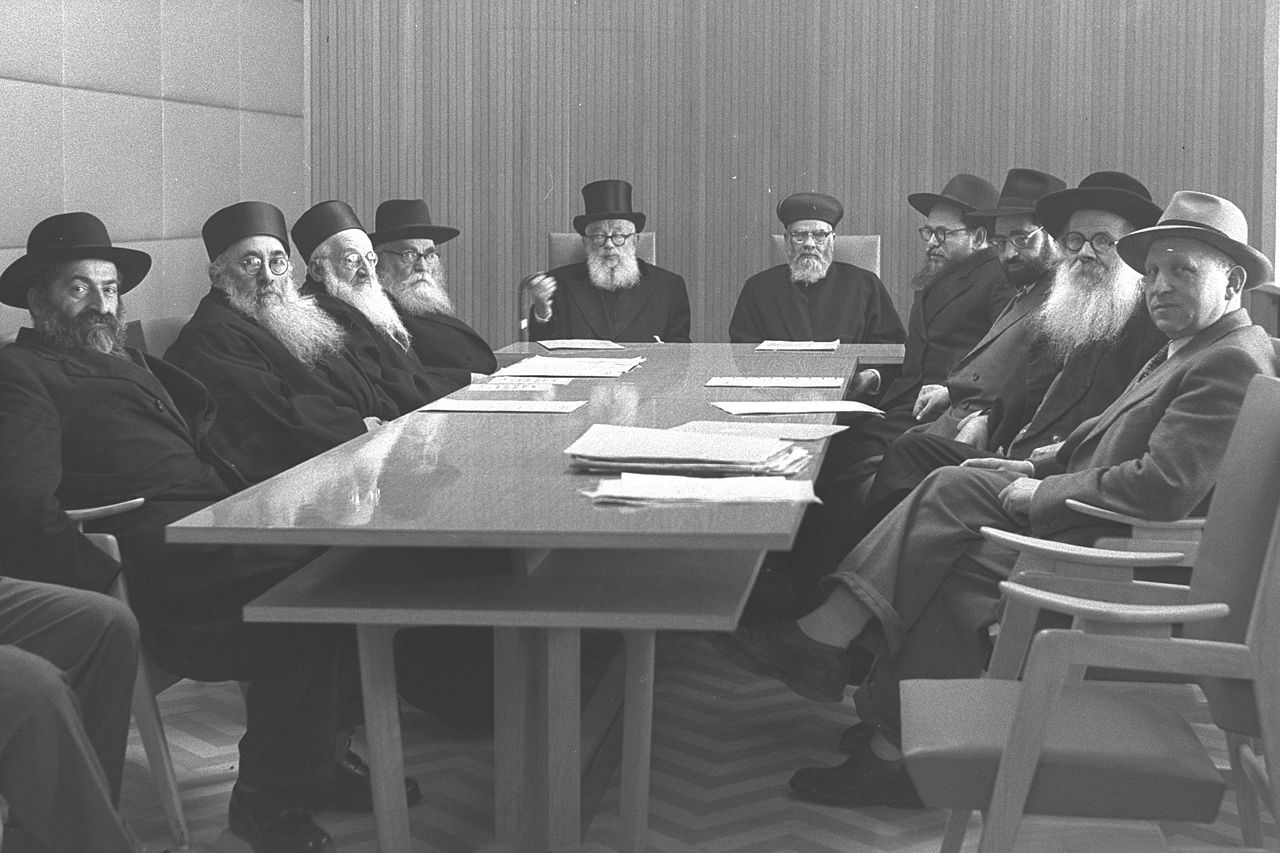
It’s old news that the Israeli rabbinate rejects those who are not Orthodox, especially in regards to immigration or marriage. What was recently revealed, however, was exactly how this process of rejection or acceptance happens, in light of the Israeli Rabbinate’s recently calling Rabbi Avi Weiss’ status as an Orthodox rabbi into question. This was in addition to the Rabbinate’s previous rejection of Rabbi Weiss’ advocating for a couple to receive a marriage license in Israel.
The process, explained in a piece published by the Times of Israel last week, explains that one, and only one, rabbi, Itamar Tubul, decides who is and who is not a Jew, a job which places him at the center of the growing friction between the Israeli rabbinate and the growing Orthodox left, championed by Rabbi Weiss.
What is perhaps most striking is not necessarily the controversy, but the process that has come to light. The system is flawed — Rabbi Tubul’s judgment of whether or not to accept an American rabbi’s certification that someone who wishes to marry in Israel is based primarily on personal contacts with rabbis and a nine-member court composed solely of rabbis who are chosen by the Rabbinate.
Additionally, the information needed is, perhaps, even more jarring. An Orthodox rabbi must certify that he (at this point, I think we can safely assume that the Rabbinate is not taking recommendations from Maharats or other Orthodox clergywomen) personally knows the person in question, or that he knows the parents in question. Some, lacking this, have been able to produce proof of a Yiddish-speaking grandparent so as to prove their Jewishness.
To personalize the problem, let me explain that my mother was born and spent the first part of her childhood living in the Soviet Union, where her parents risked everything — including their livelihood and their lives — to leave Russia during the early 1980s, at a time when the Soviet government under Leonid Brezhnev made emigration increasingly difficult. Living in a country with little formal Jewish life, save the protests by the Refuseniks, my mother has no Orthodox rabbi to vouch for her being born a Jew, nor does she have a Yiddish-speaking grandparent.
To say it in different words: according to the Israeli government, my mother would not be considered Jewish. My mother, and her parents, who were willing to risk life in jail as opposed to being drafted into the Soviet army during their application to emigrate to the United States, and who were part of a minority in the USSR who were routinely villainized in the wake of Israel’s military victory during the 1967 War, would not be considered Jewish according to the Rabbinate. While some families might have either oral or written testimony to prove their Jewishness, my family does not. The children — and, now, grandchildren — of those who risked their lives to leave the country so that the next generation could have a Jewish future would not be considered Jewish by the Israeli Rabbinate.
Thus, should I wish to move to Israel and marry there (leaving aside, for the moment, that I am queer, meaning that I cannot marry in Israel, but that is an issue for another time), I would, in theory, have to convert to Judaism. In addition to my mother not having any Orthodox rabbi to prove her Jewishness, I also am no longer in contact with any Orthodox rabbi who has known me since childhood. The Judaism in which I grew up, and the Judaism that I experience now, and the fact that I spend a significant portion of my time dedicated to religion, either through my writing or through my studies would not matter to the Israeli rabbinate. My being enrolled in Jewish day school from kindergarten through twelfth grade seems to be of no consequence, as the Rabbinate seems preoccupied with keeping the one, narrow definition of a Jew in concert with a group of Jews who are growing increasingly out of touch with the majority of Jews both in Israel and out, and American Jews are feeling this pressure.
I’m not about to convert to Judaism, partially because I, as of this moment, have no plans to move to Israel, and, more importantly, because I consider myself no less of a Jew because of my mother not having been raised in an Orthodox world. To do so would be to not only to deny my own Jewishness, but also that of my mother, my grandparents, and the other Jews who had to live in the Soviet Union. It would be to deny the horrors these Jews had to endure to be permitted to emigrate.
My family is but one example of the many that are affected by the Israeli Rabbinate’s continued subscription to a Haredi belief system that has not only become out of touch with the rest of the Jewish people, but highlights the differences between even Orthodox Jews living in the diaspora and the Rabbinate in Israel. It is high time that the organized religious leadership of the diaspora defend not only Rabbi Weiss (who, I should add, is being defended by the very same Orthodox Rabbinical Council of America that has been systematically protesting his decision to ordain clergywomen), but also the many Jews who are affected by the Rabbinate’s policies.
I would like to dedicate this blog post to my great-grandmother, Rosa Belozovskya, who risked her life, along with her daughter, son-in-law, and two grandchildren to emigrate from the former Soviet Union to the United States, who passed away this past Thursday. Her memory, and the story of my family leaving the Soviet Union, has been one that has shaped my Jewish identity and one that I find both… fascinating and awe-inspiring.
Amram Altzman is a student at List College.
